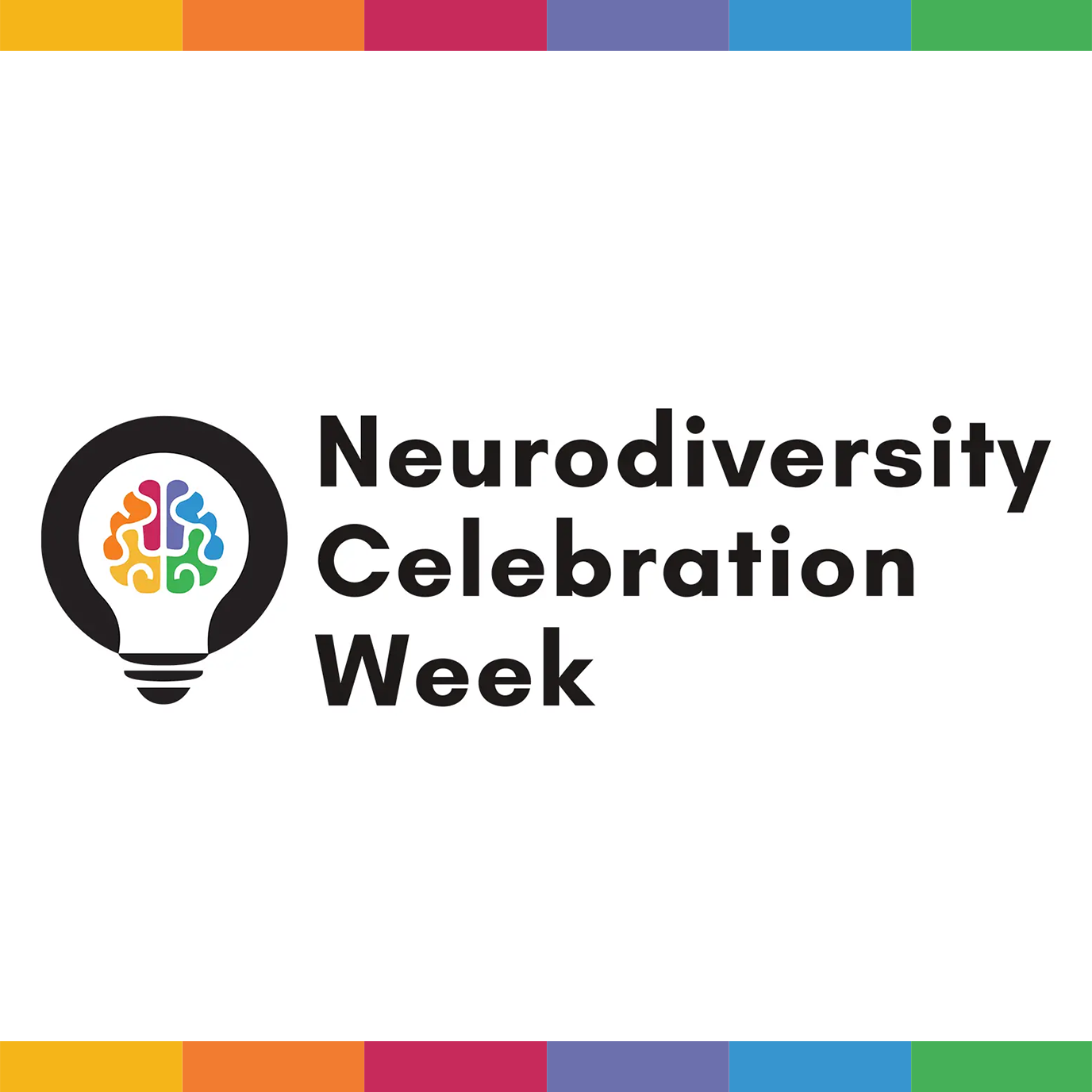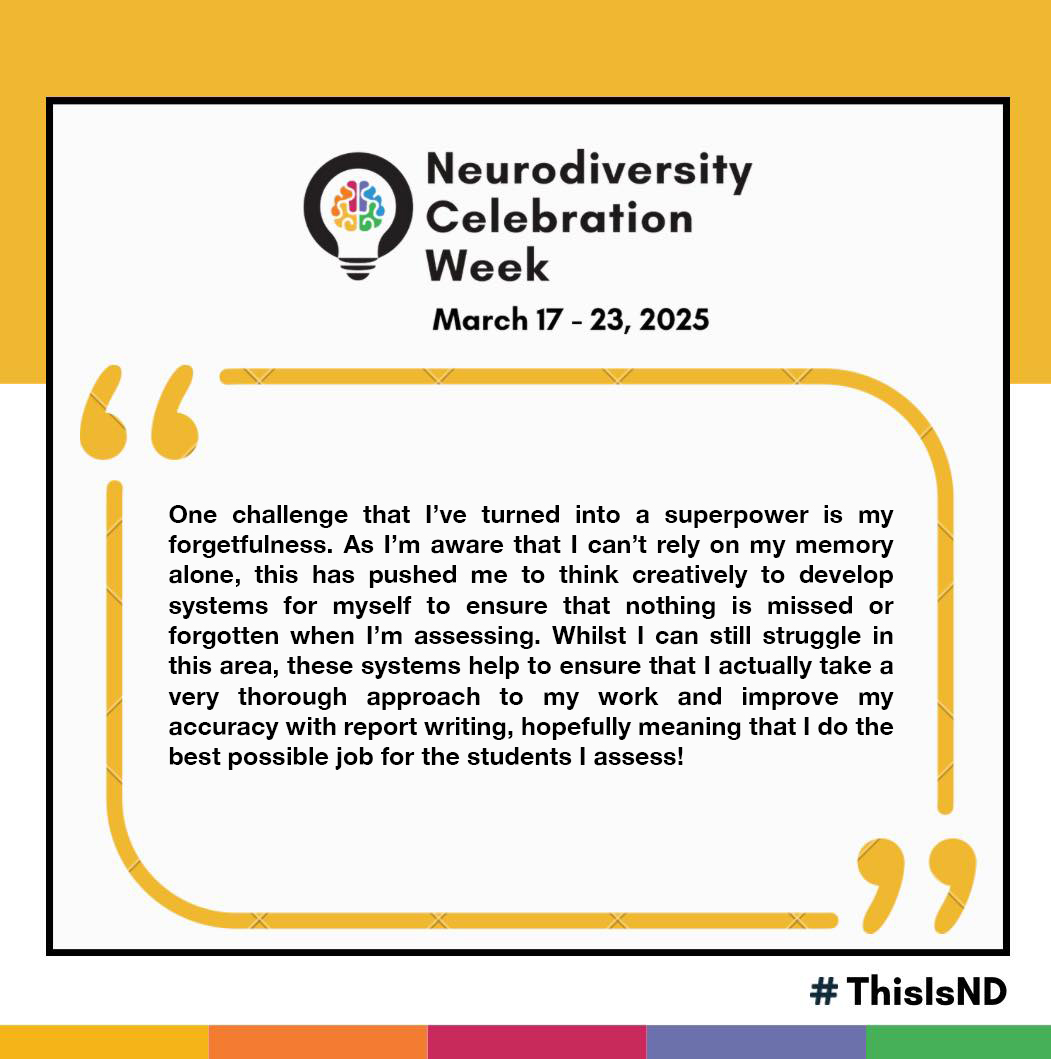
Neurodiversity Celebration Week is a worldwide initiative that challenges stereotypes and misconceptions about neurological differences. It aims to transform how neurodivergent individuals are perceived and supported by providing schools, universities, organisations, and others around the world with the opportunity to recognise the many skills and talents of neurodivergent individuals, while creating more inclusive and equitable cultures that celebrate differences and empower every individual.


Siena Castellon founded Neurodiversity Celebration Week in 2018 because she wanted to change the way learning differences were perceived. As a teenager who is autistic and has ADHD, dyslexia, and dyspraxia, her experience has been that people often focus on the challenges of neurological diversity. Siena wanted to change the narrative and create a balanced view which focuses equally on both talents and strengths.
You can find out more about this important week and how you can show your support by visiting https://www.neurodiversityweek.com/
DID YOU KNOW….
It is estimated that approximately 1 in 5 people globally have a form of neurodivergence. Neurodiversity takes many forms, such as Autism, ADHD, ADD and Specific Learning Difficulties including Dyslexia, Dyspraxia, Dyscalculia and Dysgraphia. With the correct support, neurodivergent people can often thrive and explore new opportunities and possibilities that others may not consider. For example, some neurodivergent people report having enhanced memories, pattern recognition skills and the ability to spot finer details that others may overlook.
With a better understanding of the skills and talents possessed by many neurodivergent people, and communication about how to support them in overcoming any barriers they may encounter, neurodivergent people are able to use their skills to provide unique insights and contributions to their fields, whether that be their education, research or career.

Being neurodivergent can be difficult and present many challenges to daily life, education and work. With the right tools and support strategies in place, these challenges can be overcome and used to develop strong skills and talents.
One of our DSA Assessors at Access2Learn shared their experience of neurodivergence, and how they have been able to develop one of their challenges into a superpower to support them with their role:
“One challenge that I’ve turned into a superpower is my forgetfulness. As I’m aware that I can’t rely on my memory alone, this has pushed me to think creatively to develop systems for myself to ensure that nothing is missed or forgotten when I’m assessing. Whilst I can still struggle in this area, these systems help to ensure that I actually take a very thorough approach to my work and improve my accuracy with report writing, hopefully meaning that I do the best possible job for the students I assess!
The main systems I use are to help with:
Keeping track of my recommendations
When I first started assessing, I used to make a list of my recommendations on paper, which often led to me forgetting to write something down or getting muddled up. I now keep a list of all possible support recommendations within an Excel document. I have this open during the assessment as a memory prompt and so that I can easily tick off the recommendations as I go along. This approach has reduced a lot of stress and has made me feel much more confident when relaying the summary of recommendations at the end of the assessment.
Keeping track of report deadlines
I use a spreadsheet to help me keep on top of report deadlines. I enter the student’s initials and assessment date, and the sheet automatically sets the due date. I also have a section for notes (e.g. if I am waiting to hear back from a student about their choices of support options). Beneath this is a step-by-step list of tasks I need to complete for each report. I tick off each section when it’s complete so that if I ever need to come back to a report after a few days and it has become a little hazy, I can easily see what tasks I still need to complete. This takes away much of the guesswork and time that would otherwise be spent trying to remember what I still have to complete.”
